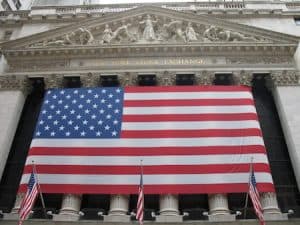 Investors Exchange (IEX) has publicly disclosed its costs of producing market data and connectivity, suggesting that incumbent exchanges could be marking up charges for such services by as much as 4,000%.
Investors Exchange (IEX) has publicly disclosed its costs of producing market data and connectivity, suggesting that incumbent exchanges could be marking up charges for such services by as much as 4,000%.
Through a detailed review of the costs for IEX to provide depth of book market data, physical connectivity and logical connectivity, co-founder and CEO Brad Katsuyama said in a statement that “exchanges owe us all some answers”.
IEX concluded in its review that for depth of book data products, incumbent exchange operators including NYSE, Nasdaq and Cboe, are charging fees that are between 900-1,800% more than IEX’s costs to offer the same product. In addition, for physical connectivity in data centres, IEX said incumbent exchanges charge fees that are between 2,000-4,000% more than IEX’s costs to provide the same connectivity.
A spokesperson for NYSE told The TRADE: “While IEX is free to cherry pick and conflate their numbers, the fact remains that the all-in cost to trade on NYSE is lower than IEX.”
Similarly, a spokesperson from Cboe said: “The IEX Group report fails to take into account significant differences in transaction fees when comparing IEX with the leading exchanges that operate fully displayed markets. By focusing exclusively on direct expenses the study overlooks the full range of costs incurred to attract displayed liquidity and operate trading platforms that produce valuable market data. It also ignores the significant value of exchange data that contributes to meaningful price discovery. Transparent markets are valuable to investors and our charges reflect that value.”
The bold move by IEX makes it the first US exchange operator to publicly disclose its costs of producing market data and connectivity to investors, which Katsuyama has described in the past as being “almost complete cloaked in darkness”.
“The costs IEX incurs to offer these products and services include the same basic costs incurred by other exchanges,” Katsuyama said about IEX’s report. “The potential profit margins that are implied by our study, on their face, contradict the claims by the major exchanges that the fees they charge the industry for their market data and connectivity are fair, reasonable, and competitive.”
At the same time, Phil Mackintosh, chief economist at Nasdaq, stated in a blog post published the same day as IEX’s costs disclosure that all-in-costs to trade, including the costs of colocation, data and trading per share, are under 10 mils (or 0.1 cents per share) across all venues, Cboe, Nasdaq, NYSE and IEX.
“Interestingly the “free data and colocation model” offered by IEX is the most expensive exchange on a per-share basis,” Mackintosh added. “Given the fundamental role of the market is to allocate capital efficiently, it’s a little bizarre that professional asset allocators think creating a free-rider problem is good for markets.”
The battle over exchange market data costs and connectivity came to a head in October, after the US financial regulator hosted a roundtable discussion with industry heavyweights on the issue. Broker-dealers, trading firms and IEX, heatedly argued the fees that exchanges charge for depth of book data, as well as SIP data, are grossly overpriced considering how little they supposedly cost to produce.
Major Wall Street firms, alongside IEX, have urged the Securities and Exchange Commission (SEC) to examine the fees in terms of revenues and costs, but incumbent exchange groups countered that for full transparency, every firm must reveal their operational costs.
Against this backdrop, a band of institutions in the US announced plans earlier this month to launch MEMX, or Members Exchange. MEMX aims to reduce fixed costs of trading with a low-cost fee structure, a move that some in the industry suggested could be a ploy to bring the issue of costs to the incumbent exchanges.
“All exchanges, including IEX, have a distinctive responsibility to help maintain a healthy capital markets ecosystem and must be held to a higher standard than any other participant. With this unique regulatory position comes the responsibility to prove that the prices they charge their members are fair, reasonable, and promote rather than undermine competition. The exchanges owe us all some answers,” Katsuyama concluded.